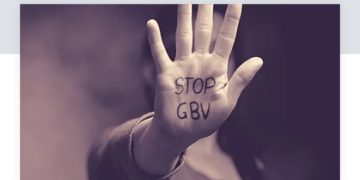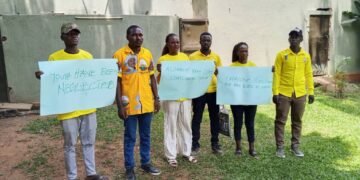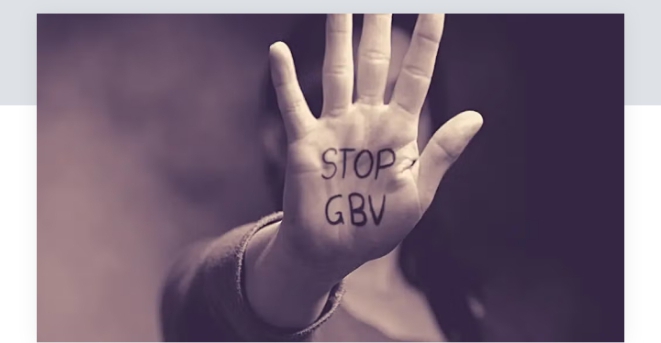OPINION
Every day, millions of women and girls around the world endure gender-based violence (GBV), a deeply ingrained human rights violation that continues to ravage societies. According to the World Health Organization, nearly 1 in 3 women worldwide have experienced physical or sexual violence in their lifetime. These figures are not just statistics they represent lives torn apart by violence that shatters the dignity of survivors, disrupts communities, and undermines global efforts for gender equality. The question is no longer about awareness it’s about action. Gender-based violence is a crisis that demands urgent, collective action from all of us.
Gender-based violence takes many forms: domestic violence, sexual assault, child marriage, female genital mutilation, trafficking, and harassment, to name just a few. Each form of violence has devastating consequences for survivors and their communities. Women and girls often face long-lasting physical, emotional, and psychological trauma, which can hinder their ability to thrive, work, and contribute to society.
The impact of GBV extends beyond the individual. Families are torn apart, economies are drained from lost productivity, and entire societies are held back from progressing. Studies show that violence against women costs economies billions of dollars each year in health care, legal costs, and lost productivity. It’s a crisis that bleeds into every facet of life—health, education, employment, and justice.

The root causes of gender-based violence are deeply embedded in societal structures, gender norms, and cultural practices that perpetuate inequality. In many cultures, violence against women is normalized, excused, or even encouraged by toxic gender roles that view women as inferior, subservient, or property. Patriarchal systems and power imbalances allow perpetrators to act with impunity, often leading to a lack of accountability for their actions. Inadequate law enforcement and the failure to implement gender-sensitive policies only perpetuate the problem.
Moreover, women and girls who are survivors of violence often face stigma and disbelief. They may be blamed for the violence inflicted upon them, leaving them isolated, silenced, and afraid to seek help. These cultural and institutional barriers make it harder to address the issue effectively, and survivors are left to navigate a system that too often fails them.
For survivors of gender-based violence, the road to recovery is long and fraught with obstacles. Access to support services, such as shelters, counseling, and legal aid, is often limited or unavailable, especially in low-income or rural areas. Fear of retaliation, shame, and lack of trust in the system prevent many survivors from seeking justice or support.
Creating survivor-centered, trauma-informed care systems must be a priority. Survivors need a safe space where they can rebuild their lives without fear of further victimization. This includes a network of support services that provide not just physical shelter but emotional and psychological healing, as well as access to legal assistance to ensure that perpetrators are held accountable.
While the responsibility to end gender-based violence falls on society as a whole, governments must take a leading role in tackling this crisis. Strong, enforceable laws that criminalize all forms of GBV are essential, but laws alone are not enough. Governments must ensure that law enforcement agencies are properly trained to handle cases of GBV with sensitivity and care. Courts must be equipped to prosecute cases swiftly and fairly, and survivors must be guaranteed access to justice without discrimination.
Countries like Spain and Rwanda have made significant strides in addressing gender-based violence through comprehensive legal frameworks and dedicated government bodies focused on tackling violence against women. These efforts demonstrate that systemic change is possible and that it starts with political will and government accountability.
Ending gender-based violence is not a task that can be tackled by governments alone. It is a collective responsibility that requires the active involvement of individuals, communities, and organizations. Everyone from educators and employers to neighbors and bystanders must be committed to breaking the cycle of violence and shifting cultural norms that perpetuate GBV.
We must support organizations that work on the frontlines to provide shelter, legal aid, and advocacy for survivors. We must amplify the voices of those who have experienced violence and demand that policymakers make ending GBV a priority. Most importantly, we must recognize that gender-based violence is not an isolated issue it is a symptom of a wider culture of inequality, and only by challenging that inequality in all its forms can we eradicate GBV for good.
Gender-based violence is not an inevitable reality. It is a preventable crisis that can be stopped if we act with urgency, solidarity, and unwavering commitment. From the laws we pass to the attitudes we challenge in our communities, each of us has a role to play in ending GBV. The question is no longer whether we can afford to act it’s whether we can afford not to.
By Ahirirwe Leticia, Communications officer WoGEM Uganda.
E-mail: ahirirweleticia100@gmail.com








































